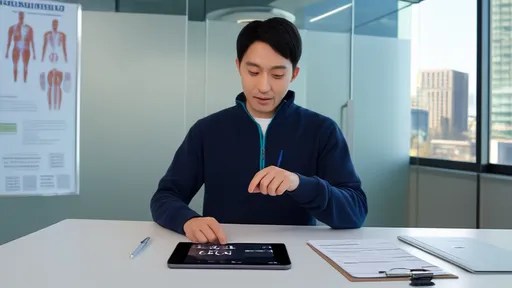Navigating the Australian healthcare system can sometimes feel overwhelming, especially when it comes to booking medical appointments. Whether you're a resident, a temporary visa holder, or a visitor, understanding how to schedule a medical examination in Australia is crucial for maintaining your health and meeting visa requirements. The process involves several steps, from choosing the right clinic to preparing for the actual examination.
Understanding the Purpose of Your Medical Examination
Before diving into the booking process, it's essential to clarify why you need a medical examination. For visa applicants, the Australian Department of Home Affairs often requires specific health checks to ensure public safety and manage health risks. These examinations typically include chest X-rays, blood tests, and general physical assessments. On the other hand, residents might need routine check-ups or specialized tests based on their doctor's recommendations. Knowing the purpose helps streamline the booking process and ensures you meet all necessary criteria.
Choosing an Approved Medical Facility
Not all clinics or hospitals in Australia are authorized to conduct immigration medical examinations. The Department of Home Affairs provides a list of approved panel physicians and radiologists who can perform these assessments. It's advisable to check this list before making an appointment to avoid any complications later. For non-immigration-related check-ups, you can visit any general practitioner (GP) or specialist, depending on your needs. Many clinics offer online booking systems, making it convenient to secure a slot without lengthy phone calls.
Preparing for Your Appointment
Once you've booked your medical examination, proper preparation is key. For visa-related health checks, ensure you bring your passport, referral letter from the Department of Home Affairs, and any previous medical records. Fasting might be required for certain blood tests, so confirm this with the clinic beforehand. For general check-ups, jot down any symptoms or concerns you want to discuss with the doctor. Arriving early with all necessary documents can help reduce stress and ensure a smooth experience.
What to Expect During the Examination
The specifics of your medical examination will vary based on its purpose. Immigration medicals often include a thorough physical examination, chest X-rays for tuberculosis screening, and blood tests for HIV and hepatitis. The doctor may also review your medical history and current medications. For routine check-ups, the GP might measure your blood pressure, weight, and other vital signs before discussing any health concerns. The entire process usually takes a few hours, depending on the tests required.
After the Examination: Next Steps
Once your medical examination is complete, the clinic will forward the results directly to the Department of Home Affairs if it's for visa purposes. You typically won't receive a copy unless requested. For general health check-ups, the doctor will discuss the findings with you and recommend any follow-up actions or treatments. If further tests are needed, they’ll guide you on how to proceed. Keeping track of your medical records is always a good practice, whether for future reference or visa applications.
Common Challenges and How to Overcome Them
Booking a medical examination in Australia isn't always straightforward. High demand can lead to long waiting times, especially in major cities. To avoid delays, try to schedule your appointment well in advance. Language barriers might also pose a challenge for non-English speakers. Many clinics offer interpreter services, so don’t hesitate to ask when booking. Additionally, costs can vary significantly between clinics, so it’s worth comparing prices if you’re paying out of pocket.
Tips for a Smooth Experience
To ensure everything goes smoothly, double-check all requirements before your appointment. Confirm the clinic’s location and parking options, as some medical facilities are in busy areas with limited parking. Dress comfortably, as you might need to change into a gown for certain tests. Bringing a book or something to pass the time can also be helpful, as wait times can be unpredictable. Lastly, don’t hesitate to ask questions—whether about the tests, the process, or the results—to ease any anxieties.
Final Thoughts
Scheduling a medical examination in Australia requires careful planning, but it doesn’t have to be stressful. By understanding the purpose of your check-up, choosing the right facility, and preparing adequately, you can navigate the process with confidence. Whether for visa requirements or personal health, staying informed and organized will help you achieve a seamless experience. Remember, your health is a priority, and taking these steps ensures you’re on the right track.

By /Aug 13, 2025

By /Aug 13, 2025

By /Aug 13, 2025

By /Aug 13, 2025

By /Aug 13, 2025

By /Aug 13, 2025

By /Aug 13, 2025

By /Aug 13, 2025

By /Aug 13, 2025

By /Aug 13, 2025

By /Aug 13, 2025

By /Aug 13, 2025

By /Aug 13, 2025

By /Aug 13, 2025

By /Aug 13, 2025

By /Aug 13, 2025

By /Aug 13, 2025

By /Aug 13, 2025

By /Aug 13, 2025

By /Aug 13, 2025